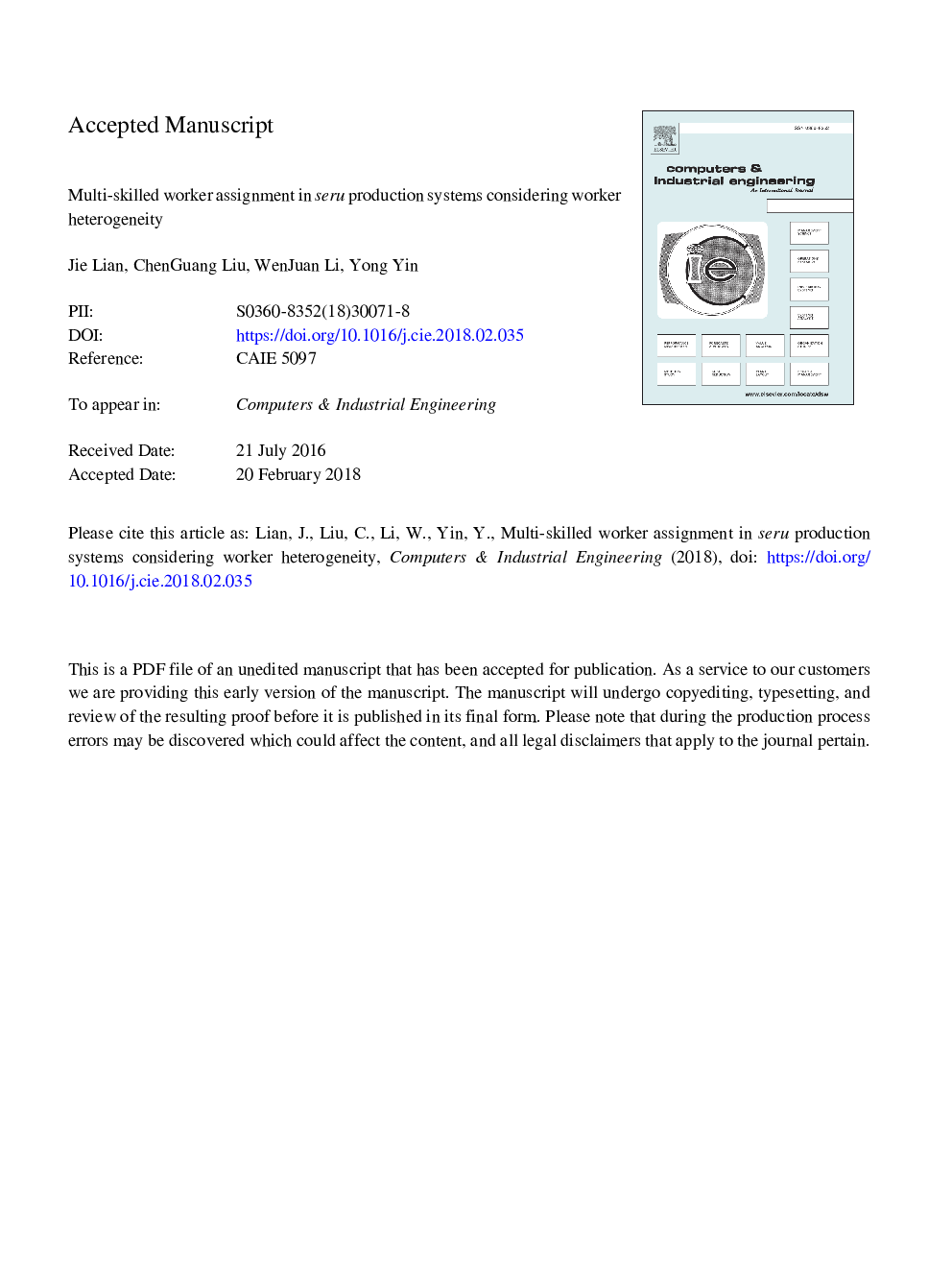| Article ID | Journal | Published Year | Pages | File Type |
|---|---|---|---|---|
| 7541400 | Computers & Industrial Engineering | 2018 | 41 Pages |
Abstract
The flexibility of production systems is becoming more and more important for manufacturers facing various changes. As an effective way to increase the flexibility in a short time with a small investment, multi-skilled workers have received more attention in recent years. In this paper, a multi-skilled worker assignment problem is solved in the context of seru production systems, in which differences in workers' skill sets and proficiency levels are taken into consideration. Worker grouping, cell loading, and task assignment are solved concurrently in the problem. A mathematical model with objectives of improving the inter-seru and inter-worker workload balance is proposed to solve the problem. In order to verify the proposed model, a numerical example is presented and solved by a sum weighted method. Due to the NP-hard nature of the model, a meta-heuristic algorithm based on NSGA-II is developed. The algorithm is tested by several numerical examples and the impact of differences in workers' competency on workload balance is analyzed based on the computational results.
Keywords
Related Topics
Physical Sciences and Engineering
Engineering
Industrial and Manufacturing Engineering
Authors
Jie Lian, ChenGuang Liu, WenJuan Li, Yong Yin,
